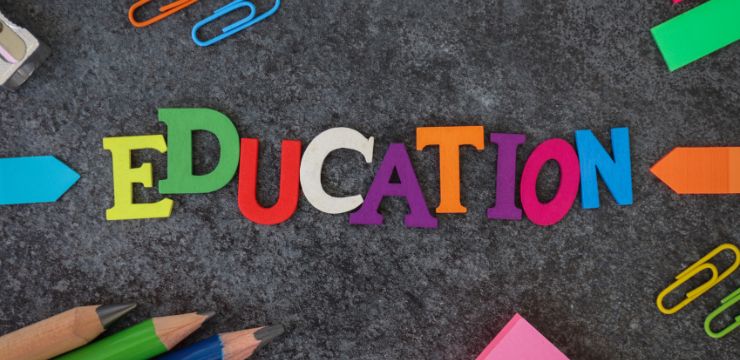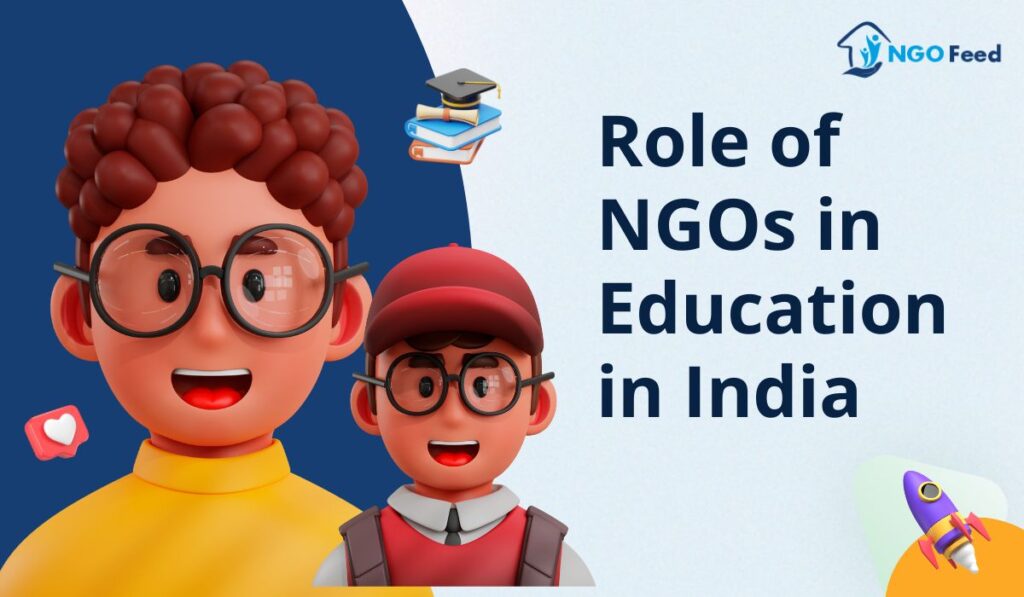Role of NGOs in Education in India: Education is the foundation upon which every individual builds up his right. In spite of that, hundreds and millions of Indian children still do not get the chance to receive quality education because of many skin-deep reasons. Education and literature did push the people, and it is where the NGOs will lead the community in this endeavour. This article is going to discuss the role that non-governmental organizations play in education in India and their effect on society.
Table of Contents
How are NGOs contributing to the cause of Education?
- As far as NGOs in India are concerned, they are the ones that have been leading the movement, as they are the ones that are working mostly with the children from the poorest and most neglected families in India.
- Teaching people is the significant core of facilitating the dissemination of education and educating the parents and other leaders who lead the communities.
- Community and children who need education: schools should be the place where education is accessible.
- For disadvantaged children to gain access to quality education, they need to have children with poverty and injustice pick up knowledge and skills.
- NGOs work hand-in-hand with local communities to form community children’s groups (CG) and schools.
- Management Committees (SMC) is to work with them enough to ensure that they do the job of the child’s development.
Role of NGOs in Education in India
NGOs are associations with a non-profit nature and work on their goals without government control. The non-profit agencies source to raise public awareness and solve problems that are related to social, ecological, and some other domains. Civil Society Organizations (CSOs), or NGOs as they are often referred to, are the key players in the development arena. The promotion of education and literacy in India is, in fact, a result of the significant contribution of the NGOs working in the country. In this section, you will able to learn in-depth information about the role of NGO in inclusive education with the expertise of NGOFeed editor.
1. NGOs and Education
Being non-profitable, NGOs are organizations that work to bring benefits to society at large. In the education area, NGOs do things like promoting access to education, improving its quality, and coming up with possible ways to deal with education-related issues. These organizations mainly collaborate with the governments as well as the other relevant stakeholders to serve their goals.
Also Read: Role of UNESCO in Education
2. Improving Access to Education
NGOs in education play a crucial role in ensuring that the majority of children access education. Non-governmental organizations aspire to guarantee a child from a less privileged community and, more so, a rural background access to education. They commonly establish schools in those communities and hence provide free education and the rest of the needed resources to students.

3. Promoting Quality Education
Furthermore, a key mission of NGOs in education is to improve the quality of this one. NGOs aim at the improvement of education in schools via the provision of teacher training, the production of learner materials, and the provision of good infrastructure, among others. Besides that, they diligently push for the adoption of inclusive education so that every child gets the best learning.
4. Promoting Universal Access
NGOs establish a system through which everybody should be able to access education, no matter what their family’s income level is, what gender they are or where they live. These people combat any obstacles, such as poverty, inequality, and poor facilities, which make education relevant to everybody.
5. Bridging the Gender Gap
Education has gender equality as one of its top objectives for NGOs. They engage in breaking the gender stereotypes in the area of educational access, equipping girls and women with equal educational opportunities similar to their counterparts and proactively supporting programs that support gender-specific learning environments.
6. Supporting Marginalized Communities
NGOs provide priority educational opportunities for underprivileged communities, which might include people like refugees, ethnic minorities and poor and disadvantaged individuals. They provide community learning centres, scholarships, and vocational training to lift up these communities to create educational opportunities that were not common.
Also Read: Role of NGOs in Girl Child Education
7. Promoting Life Skills and Values
NGOs understand the significance of comprehensive development and employ programs that intimate life skills, values, and character education along with academic studies. These courses help students identify their unique skills, including critical thinking, problem-solving, communication, and empathy, and prepare them for their future by being successful in school and professionally.
8. Addressing Issues Related to Education
NGOs undoubtedly also have a substantial part to play in resolving problems related to education. By incorporating initiatives to improve these educational outcomes, organizations aim to help children with low enrollment, students who drop out of school early, and those who perform poorly in classes. Besides that, they also contribute to the development of education for girls and make sure that they receive equal education opportunities with boys, just like girls do.
9. NGOs and Government Partnership
NGOs very often contribute their work in cooperation with authorities in order to resolve the educational problems in the country. They cooperate with the relevant state institutions in the development and execution of programs and laws that aim at achieving quality education outcomes. NGOs also listen to the Government’s plans for school system improvement and provide them with alternatives.
10. NGOs and Community Engagement
Apart from that, NGOs tend to be active in the area of schools and communities to raise awareness. They hold out hands with the parents and community members to raise awareness of the importance of education and persuade them to send their children to school. NGOs, on the other hand, also support the field of community-based education programs, which are designed based on the needs of specific communities.
Also Read: Role of UNICEF in Education
Challenges for NGOs in improving education
Non-Governmental Organizations (NGOs) confront many obstacles while pushing for educational advancement in India. The budget limitation is the first hindrance to meeting these goals. NGOs are the ones that depend on donations and grants from varied sources, which are not adequate to cater to their needs. Without enough money, they cannot expand the scope of the organization to educate more children and give them a good education.
Another problem that NGOs have to deal with in those regions with inadequate infrastructure is an absence of transport, electricity, and a general lack of supply. NGOs carry the cost for the development of schools and the construction of other facilities, which is often a substantial budget issue.
In addition, NGOs encounter similar problems as teachers, who need to be highly skilled in order to provide the children with a good education. The majority of schools that these NGOs run face the challenge of having an insufficient number of qualified teachers, something which really hampers the quality of education.
Also Read: Role of UNESCO in Education
Conclusion
The NGOs are very important in advocating for educational and literacy growth in India. They ensure giving an education of better quality that is accessible to the low-income classes who generally cannot afford it. NGOs have been able to augment the enrollment rates, decreasing the dropout rate and ensuring better performance in class. They (the policies of international organizations) have been successful in this by encouraging child welfare and reducing gender inequality in education. Nevertheless, NGOs suffer from difficulties such as funding, infrastructure, and competent teachers. And this is very important for a government.

